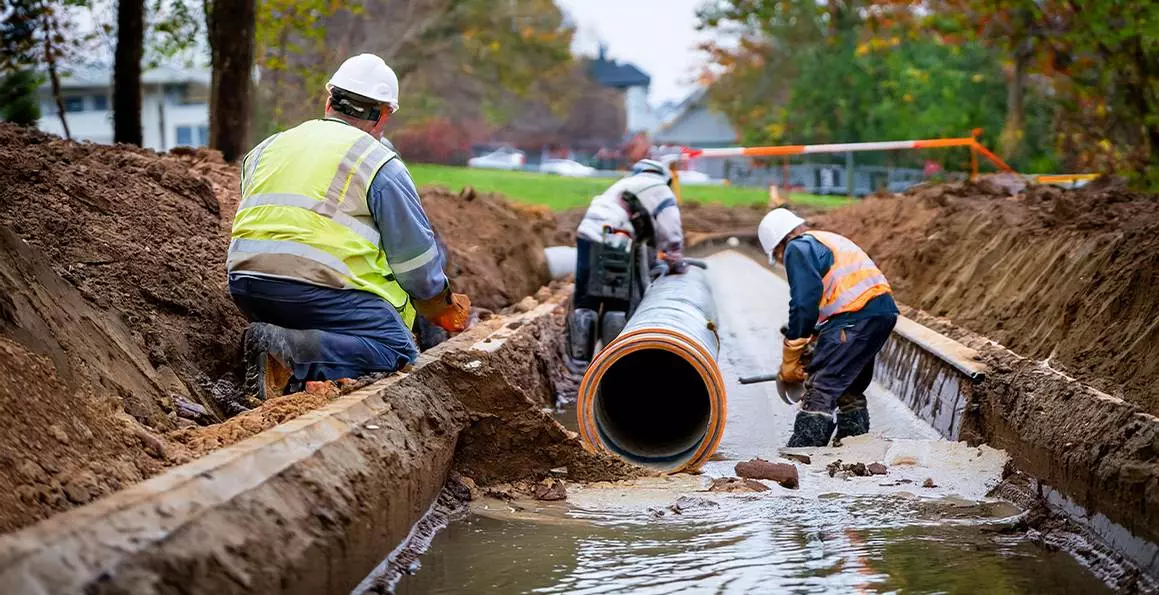ASI’s Guide to Maintaining Municipal Water, Wastewater, and Storm Water Systems

Why are Maintenance of Municipal Potable Water, Storm, and Wastewater Systems Important?
Maintaining municipal potable water, storm, and wastewater systems is vital for public health and the consistent delivery of essential services. Potable water systems must be regularly inspected to prevent contamination and ensure water quality. Without proper upkeep, issues like leaks or corrosion can jeopardize the safety of drinking water, posing health risks to the community. Routine maintenance ensures that the water provided to homes and businesses remains clean, safe, and reliable.
ASI’s Field Specialization for Potable Water, Storm, and Wastewater Systems
ASI’s expertise in managing municipal water systems is rooted in its comprehensive approach to inspection and maintenance. These systems, which include potable water, stormwater, and wastewater infrastructure, are vital to the well-being of any community. ASI uses a variety of advanced techniques to ensure these systems are functioning optimally, identifying issues before they escalate into major problems. This proactive approach helps maintain municipal systems’ safety, reliability, and longevity.
Visual Inspection
Visual inspections are the first line of defence in identifying potential issues within a municipal water system. By examining the surface above water mains, our engineers can detect early signs of problems that may not yet be visible underground. This process includes:
- Surface Examination: Surface inspections involve carefully observing the area above the water main for any irregularities, such as depressions, leaks, or unexplained wet spots that could indicate underground leaks or sinkholes. Detecting these signs early can prevent more significant issues from developing.
- Valve and Hydrant Checks: Valves and fire hydrants are critical water distribution system components. Ensuring they are accessible and functional is vital for both regular operations and emergency responses. This step involves checking for easy access and verifying that these components operate correctly.
Pipeline Inspection
For a more in-depth understanding of the pipeline’s condition, specialized inspection tools are used to assess the internal state of the water system infrastructure. This includes:
- Access Points: Inspection points such as manholes and valve boxes along the water main route provide entry for inspection tools. Identifying and accessing these points is the first step in a thorough pipeline inspection.
- Internal Condition: Advanced tools like CCTV cameras and robotic crawlers are deployed inside the pipeline to inspect for cracks, corrosion, sediment buildup, and structural defects. These inspections help pinpoint areas that require repair or further investigation, ensuring the pipeline’s integrity.
Leak Detection
A municipal water system leak can lead to significant water loss and potential contamination. Detecting these leaks promptly is essential for maintaining system efficiency and safety. ASI employs the following techniques:
- Acoustic Sensors: Acoustic listening devices are used to detect the sound of water escaping from the pipeline, which can indicate a leak. This method is particularly useful in identifying leaks that are not visible on the surface.
- Pressure Testing: Pressure tests simulate operational conditions to identify leaks or weaknesses in the pipeline. By monitoring pressure levels, engineers can determine if the pipeline has any issues that could lead to future leaks.
Water Quality Sampling
Ensuring the water being delivered is safe for consumption is a top priority for any municipal water system. Regular water quality sampling and analysis are crucial steps in this process:
- Sampling Points: Water samples are collected from designated points along the main to test for key water quality parameters, such as chlorine residual, turbidity, and bacteria levels. These samples provide a snapshot of the water’s condition at various stages within the system.
- Analysis: Collected samples are sent to laboratories for detailed analysis according to regulatory standards. This step ensures that the water meets all safety requirements and allows for the detection of any potential contamination.
Structural Integrity Assessment
The long-term viability of a municipal water system depends on the structural integrity of its components. ASI conducts thorough assessments to ensure the materials and surrounding environments are stable and secure:
- Corrosion Assessment: It is crucial to evaluate the condition of pipeline materials, such as ductile and cast iron, for signs of corrosion or degradation. This assessment helps determine the pipeline’s lifespan and identifies areas needing repair or replacement.
- Bedding and Backfill: The stability of the bedding and backfill materials surrounding the pipeline is essential for supporting the infrastructure. Inspections in this area ensure that the pipeline remains stable and that the surrounding earth is not contributing to any structural weaknesses.
Conclusion
Maintaining municipal water systems is essential for public safety and efficient service. At ASI, we specialize in thorough inspections and advanced techniques that help prevent costly issues and keep your potable water, stormwater, and waste systems running smoothly.
If you want to ensure your community’s water systems are in top condition, contact us at ASI. Our expert engineering team is here to handle all your inspection and maintenance needs with the utmost professionalism and care.
Condition Assessments of Physical Assets
Condition assessments systematically evaluate an asset’s physical state and performance to ensure reliability, safety, and…
The Importance of Asset Management for Buildings
Building Condition Reports (BCR) and Climate Risk and Vulnerability Assessments (CRVA) are crucial for maintaining structures’ safety…
Experts in Municipal Decarbonization and Energy Reduction Strategies
The push for sustainability has never been more critical, especially for municipalities seeking to lower their carbon footprint…


